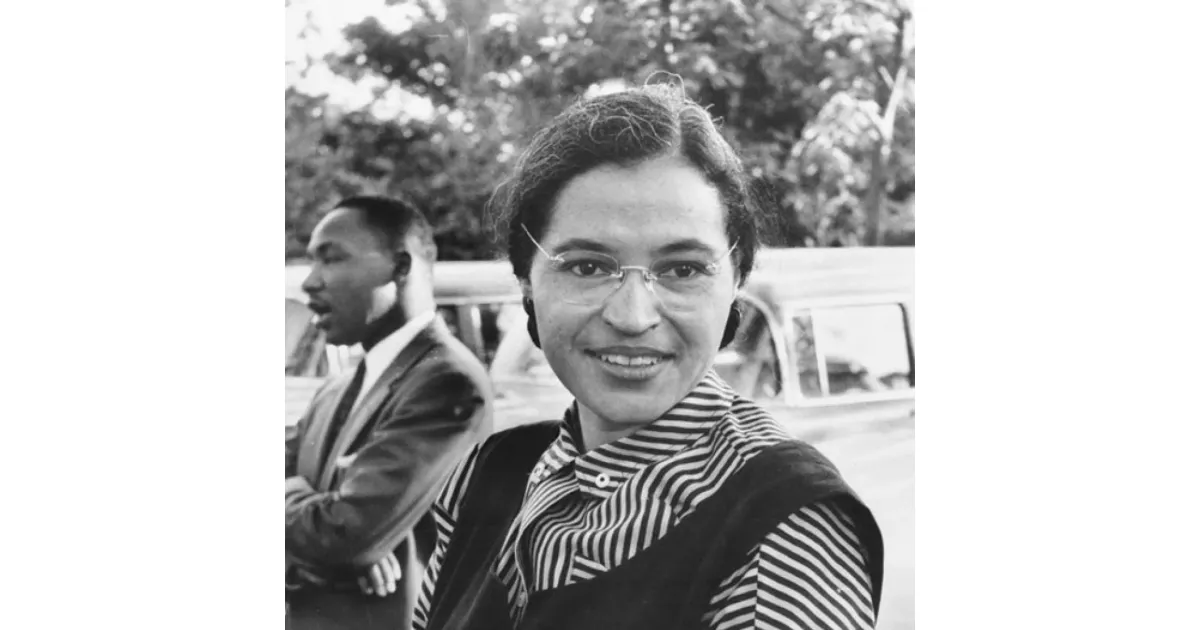Resilience and perseverance in the journey of Rosa Parks. A timeline of obstacles and growth.
Rosa Parks, an American civil rights activist, is renowned for her courageous act in 1955 when she refused to give up her bus seat to a white passenger in Montgomery, Alabama. This act of defiance against the Jim Crow segregation laws ignited the Montgomery bus boycott, a pivotal event in the Civil Rights Movement. Often called the 'mother of the civil rights movement,' Parks's bravery and commitment to equality helped catalyze widespread efforts to end racial segregation and discrimination in the United States, making her a significant figure in American history.
1900: Montgomery passed ordinance segregating streetcar passengers
In 1900, Montgomery passed a city ordinance segregating streetcar passengers by race, before state-wide segregation was implemented.
1901: Jim Crow segregation codified
In 1901, Alabama formally codified Jim Crow segregation into law at a state constitutional convention, enforcing racial separation in various aspects of life.
1902: Streetcar boycott protests and amendment
Between 1900 and 1902, Montgomery's Black residents boycotted segregated streetcars. The boycotts resulted in an amendment to the city ordinance, which stipulated that no rider had to surrender a seat unless another was available.
1940: Black voter registration in Montgomery
In 1940, less than 0.1% of Black Montgomerians were registered to vote, highlighting the obstacles preventing Black people from exercising their right to vote.
1943: First attempt to register to vote
In 1943, Rosa Parks made her first attempt to register to vote, encouraged by NAACP activist E. D. Nixon.
1943: Confrontation with bus driver James F. Blake
In 1943, Rosa Parks was confronted by bus driver James F. Blake when she tried to take her seat from the front of the bus, resulting in her refusal to re-board through the back and a tense exchange.
1944: Investigated Recy Taylor's gang rape
In 1944, Rosa Parks, in her capacity as NAACP secretary, began investigating the gang rape of Recy Taylor, a Black woman from Abbeville.
1944: Viola White Arrested
In 1944, Viola White, an employee at Maxwell Air Force Base, was arrested for declining to give up her seat on a Montgomery bus.
1945: Second grand jury hearing fails to indict Taylor's assailants
In 1945, after a second grand jury hearing, the state failed to secure indictments for the assailants in the Recy Taylor case despite the efforts of Parks and other activists.
1949: Mary Wingfield Arrested
In 1949, Mary Wingfield was arrested for declining to give up her seat on a Montgomery bus.
October 1954: Mary Louise Smith Arrested
In October 1954, teenager Mary Louise Smith was arrested for declining to give up her seat on a Montgomery bus.
March 1955: Claudette Colvin Arrested
In March 1955, Claudette Colvin, a fifteen-year-old student, was arrested for declining to give up her seat on a Montgomery bus.
April 29, 1955: Aurelia Browder Arrested
On April 29, 1955, Aurelia Browder was arrested for declining to give up her seat on a Montgomery bus.
August 1955: Attended meeting on Emmett Till's lynching
In August 1955, Rosa Parks attended a meeting in Montgomery concerning the lynching of Emmett Till, and was heartened by the attention the case received.
October 21, 1955: Susie McDonald Arrested
On October 21, 1955, Susie McDonald was arrested for declining to give up her seat on a Montgomery bus.
December 5, 1955: Montgomery Bus Boycott Planning and Parks's Trial
On December 5, 1955, the day of Rosa Parks's trial, the Women's Political Council (WPC) planned a one-day boycott of Montgomery buses. Jo Ann Robinson collaborated with students to produce 35,000 leaflets announcing the boycott using a mimeograph provided by the college's business chair, John Cannon.
December 1955: Previous arrests for not giving up bus seats
Prior to December 1955, several people were arrested for declining to give up their seats on Montgomery buses, setting the stage for Rosa Parks's pivotal act of defiance.
1955: Refusal to move on bus sparks boycott
In 1955, Rosa Parks refused to give up her seat to a white passenger on a bus in Montgomery, Alabama, violating Jim Crow laws. This act of defiance led to her arrest and sparked the Montgomery bus boycott, a pivotal event in the civil rights movement.
1955: Arrest and Bus Boycott
In 1955, Rosa Parks was arrested for refusing to give up her seat on a bus, leading to a widespread boycott organized by the Women's Political Council (WPC) and the Montgomery Improvement Association (MIA). The boycott, which lasted 381 days, ended after segregation on buses was deemed unconstitutional in the court case Browder v. Gayle.
January 1956: Fired from Montgomery Fair
In January 1956, Rosa Parks was fired from her job as a seamstress at Montgomery Fair because of her involvement in the bus boycott. She was being ostracized by her coworkers.
February 1956: MIA Relief Fund Disbursement for Parks
In February 1956, King requested a $250–$300 disbursement for Parks from the Montgomery Improvement Association (MIA) relief fund due to financial hardship. The funds were authorized to help Rosa Parks.
August 1957: Parks leaves Montgomery for Detroit
In August 1957, Rosa Parks left Montgomery for Detroit due to economic insecurity, threats to her safety, and divisions within the MIA leadership. The MIA gave her $500 as a "going-away present".
1957: Execution of Jeremiah Reeves
In 1957, Jeremiah Reeves, who was supported by Rosa Parks, was executed after being accused of raping a white woman.
1959: Parks and Family Lose Apartment
In 1959, Rosa Parks and her family lost their apartment and moved into a meeting hall for the Progressive Civic League (PCL) in Detroit.
1960: Parks' Health Deteriorates
In 1960, Rosa Parks's health deteriorated, requiring multiple surgeries, which led to significant debt from unpaid medical bills. She received donations from the MIA and PCL.
August 30, 1994: Robbed and Attacked in Her Home
On August 30, 1994, at age 81, Rosa Parks was robbed and assaulted in her home by Joseph Skipper, who broke down her back door and demanded money, ultimately punching her in the face after she complied with his initial demands. She then gave him all the money she had, which was $103, and she called the police. Skipper was later arrested on August 31.
2002: Received Eviction Notice
In 2002, Rosa Parks received an eviction notice from her apartment for non-payment of rent because she was incapable of managing her own financial affairs. Her rent was later paid from a collection taken by Hartford Memorial Baptist Church in Detroit.
Mentioned in this timeline

Nicki Minaj born Onika Tanya Maraj-Petty is a highly influential...

Martin Luther King Jr was a pivotal leader in the...
Barbie is a fashion doll created by Ruth Handler and...
Germany officially the Federal Republic of Germany is a nation...

Inflation in economics signifies an increase in the average price...
Virginia a state in the Southeastern and Mid-Atlantic US lies...
Trending

23 hours ago Candace Owens embroiled in Erika Kirk cheating rumors and pastor trafficking claims.

58 minutes ago Martin Short's daughter, Katherine Short, tragically passes away at the age of 42.
58 minutes ago Leverkusen vs Olympiakos: Champions League Play-off Live, Lineups, and Tillman's Absence

2 hours ago Pedro Pascal and Rafael Olarra Spark Dating Rumors After New York City Outing.

2 hours ago US Men's Hockey Team Achieves Historic Victory Over Canada in Olympics

2 hours ago Chet Holmgren's Status in Thunder vs Raptors Game: Predictions and Injury Report
Popular

Jesse Jackson is an American civil rights activist politician and...

Susan Rice is an American diplomat and public official prominent...

Barack Obama the th U S President - was the...

Bernie Sanders is a prominent American politician currently serving as...

Michael Joseph Jackson the King of Pop was a highly...

XXXTentacion born Jahseh Dwayne Ricardo Onfroy was a controversial yet...
